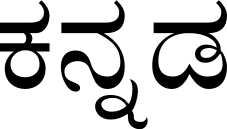Language/Kannada/Vocabulary/Express-Surprise
Hi Kannada learners! 😊
In this lesson, we will be learning how to express surprise in Kannada. Surprise is a universal emotion that can be expressed in many different ways. Knowing how to express surprise in Kannada will help you communicate more effectively with native Kannada speakers.
Take a moment to explore these relevant pages as you conclude this lesson: How to Say Hello and Greetings & Introductions.
Basic Expressions[edit | edit source]
Let's start with some basic ways to express surprise in Kannada:
| Kannada | Pronunciation | English |
|---|---|---|
| ಹೇಗಿದೆಯೆ? | hegidēye? | How is it? |
| ಏನು ಕಂಡಿದ್ದೀರಿ? | enu kandiddīri? | What did you see? |
| ನೋಡಿದ್ದೀರಾ? | nōḍiddīrā? | Did you see? |
| ಯಾರೊ ಬಂದಿದ್ದಾರೆಂದು ಕೇಳಿದೆಯಾ? | yāro bandiddāreṇḍu kēḷidēyā? | Did you hear someone is coming? |
| ಅದು ನಿಜವಾಗಿಯೂ ನಡೆಯಿದ್ದುದೇ? | adu nijavāgiyū naḍeyiddudē? | Did that really happen? |
| ಅದೇನು ಸತ್ಯವೆ? | adēnu satyavē? | Is that true? |
For example, imagine you walk into a room and see a friend balancing a book on their nose:
- Person 1: ಅದು ನಿಜವಾಗಿಯೂ ನಡೆಯಿದ್ದುದೇ? (adu nijavāgiyū naḍeyiddudē? / Did that really happen?)
- Person 2: ಹೌದು ನಡೆಯಿತು! (haudu naḍeyitu / Yes, it happened!)
Advanced Expressions[edit | edit source]
Now let's move onto some more advanced expressions to express surprise:
| Kannada | Pronunciation | English |
|---|---|---|
| ಇದು ಹೇಗೆ ಸಾಧ್ಯ? | idu hege sādhy? | How is this possible? |
| ಸಮಯ ಯಾವಾಗಿದೆಯೇ? | samaya yāvāgideye? | What time is it? |
| ಈಗ ಯಾರು ಇಲ್ಲಿದ್ದಾರೆ? | īga yāru illiddāre? | Who is here now? |
| ಅತ್ಯಾಶ್ಚರ್ಯಕರವಾದ ಸಂಗತಿ! | atyāścaryakaravāda saṅgati! | Surprising news! |
| ಶೋಕೋದ್ರೇಕಕ್ಕೆ ಕಾರಣವೇನು? | śōkōdrēkakkē kāraṇavēnu? | What's the cause of sorrow? |
For example, imagine you hear some surprising news:
- Person 1: ಅತ್ಯಾಶ್ಚರ್ಯಕರವಾದ ಸಂಗತಿ! (atyāścaryakaravāda saṅgati! / Surprising news!)
- Person 2: ಸಾಧ್ಯವಿಲ್ಲ! (sādhyavilla! / That's impossible!)
Dialogue[edit | edit source]
To better understand how these expressions can be used in context, here's a simple dialogue between two people:
- Person 1: ಶೋಕೋದ್ರೇಕಕ್ಕೆ ಕಾರಣವೇನು? (śōkōdrēkakkē kāraṇavēnu? / What's the cause of sorrow?)
- Person 2: ನನ್ನ ಚಿಂತನೆಗಳು ಸುಳಿದು ಹೋಗುತ್ತಿವೆ. (nanna ciṃtanēgaḷu suḷidu hōguttive / My thoughts are running away.)
- Person 1: ಹೇಗಿಂದು ನಿದ್ರೆ ಮಾಡಿದ್ದೀರಿ? (hegiṃdu nidre māḍiddīri? / How did you sleep last night?)
- Person 2: ಚೆನ್ನಾಗಿಯೇ ನಿದ್ರೆ ಆಯಿತು. (chennāgiyē nidre āyitu / I slept well.)
Tips[edit | edit source]
To further improve your Kannada language skills, you can try the following:
- Watch Kannada movies and TV shows to learn how native speakers express surprise
- Practice with native Kannada speakers on Polyglot Club
- Visit the Kannada language forum on Polyglot Club and ask for tips or clarification
- Check out our Kannada vocabulary page on Polyglot Club to improve your overall Kannada language skills.
Sources[edit | edit source]
➡ If you have any questions, please ask them in the comments section below.
➡ Feel free to edit this wiki page if you think it can be improved. 😎
Other Lessons[edit | edit source]
- Clothes
- Count to 10
- Food
- Colors
- Countries (deshagalu)
- Education
- Fruits
- Animals
- How to Say Hello and Greetings

